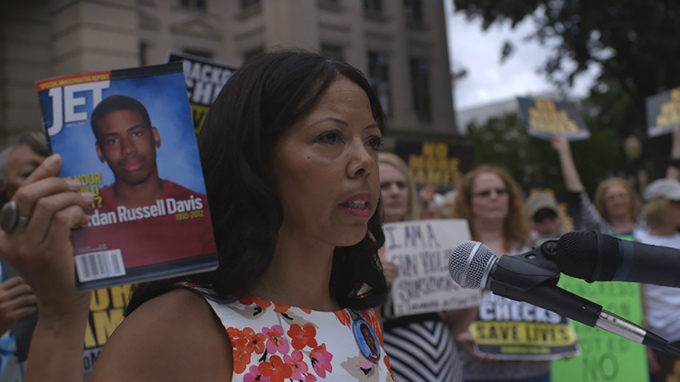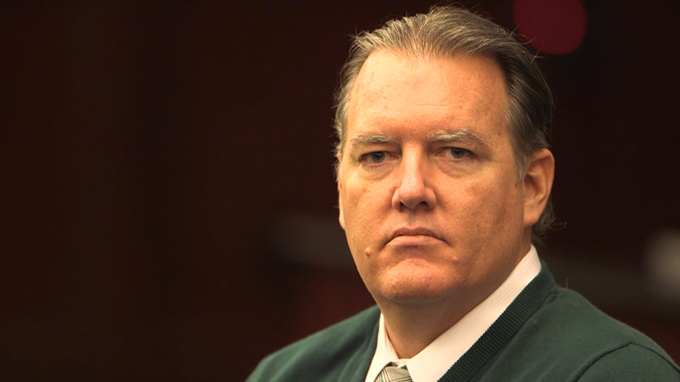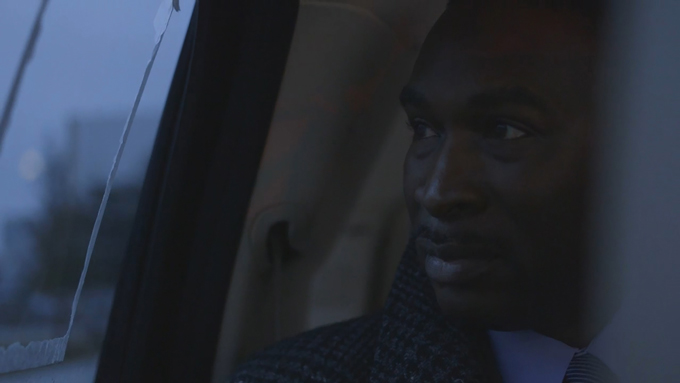
Jordan Davis’s mother, Lucia McBath, seen in 3½ Minutes (dir. Marc Silver), 2015.
I saw the story of America in three and a half minutes. They took place on Black Friday, 2012, in a gas station parking lot in Jacksonville, Florida. There, a white middle-aged software engineer named Michael Dunn argued with a black teenager, Jordan Davis, about the volume of the music playing in Davis’s car. Once those three and a half minutes elapsed, Dunn fired 10 gunshots at the car, fatally wounding Davis.
Dunn perceived himself as the victim. He has insisted that he is not racist. Nonetheless, no one disputes that he killed an unarmed 17-year-old in an argument that began over the playing of what he called “thug music.”
I made the film 3½ Minutes because I was fascinated by how racial profiling, gun rights and self-defense laws came together to tragic effect in that very short period of time. I found it impossible to turn my gaze away from the racism, and yet people were going out of their way to deny the racism at its heart. Not only did Dunn consider himself an innocent victim, but the case itself was not considered to be a hate crime.

Image of Michael Dunn from 3½ Minutes (dir. Marc Silver), 2015.
My film begins in the courtroom, as witnesses—Dunn, his fiancée and the three young men who were in Davis’s car at the time of the shooting—take the stand. During the 3½-minute argument between Dunn and Davis, witnesses said no explicitly racist language was used. So the role that racism may have played in the shooting was never allowed to be raised in the courtroom, not beyond Dunn’s fiancée admitting that he had complained about the “thug music” from Davis’s car.
Michael Dunn is a symbol of racism in the United States, which brands itself as post-racial
Meanwhile, outside the courtroom, a starkly different conversation was unfolding. On the streets and in the media, the case was all about race. My film captures this through intimate conversations with Davis’s friends and parents, who analyze the phrase “thug music” as a more politically correct, but no less racist, version of the “n” word. It also shows their efforts to see justice served, and to prevent such killings from happening again. Take Lucia McBath, Jordan Davis’s mother, who has admirably transformed her grief into activism, becoming a community leader advocating for gun control.
To me, Michael Dunn is a symbol of racism in the United States, which brands itself as post-racial but has never overcome its long history of racism. We cannot continue to uphold the myth that racism in America is over because certain explicit expressions of racial prejudice have become taboo; we need to name the mess we’re in, if we’re ever going to get out of it.

Image of Jordan Davis’s father, Ron Davis, from 3½ Minutes (dir. Marc Silver), 2015.
Jordan Davis did not die as the result of an isolated phenomenon. Those three and a half minutes, after all, could also be the one and a half seconds it took for a Cleveland police officer to shoot a 12-year-old, Tamir Rice, last November. Or the four minutes during which Rice lay in the police car dying before he was given medical aid. Or the four hours that saw Michael Brown lying facedown on a residential street in Ferguson, MO, soaking in his own blood as families rushed their children away from the unconcealed scene of death.
We must commit to uprooting racism within our communities if we are ever, truly, going to be a “post-racial” society
We are not powerless to escape the biases that lead to these tragedies. We have laws that allow people to defend themselves against these deaths that we might reform. Take Florida’s notorious “stand your ground” law, which is rooted in the common-law concept of the castle doctrine (as in the saying “your home is your castle”). The castle doctrine affords legal protection, under certain circumstances, to those who use deadly force to defend themselves against an intruder in their homes. But “stand your ground” radically extends legal protection for the use of force. In Florida and other states, public spaces packed with strangers—malls, parking lots, busy streets—may be filled with people carrying guns who no longer have a duty to retreat if they perceive a threat. The problem is, many Americans believe, consciously or unconsciously, that young black men are always threats. These laws could be repealed. At the same time, we need introspection; we must commit to uprooting racism within our communities—and within ourselves—if we are ever, truly, going to be a “post-racial” society.
Let’s think about how those three and a half minutes when Dunn confronted Davis could have been different if we all agreed to challenge racism wherever we see it. Let’s think about how taking a few minutes to think before rushing to judgment could have saved the lives of Tamir Rice, Jordan Davis, Michael Brown and so many other young black men. That’s the only way we can build a country where every second, every minute and every hour of black lives matter.
This piece was produced in partnership with The Guardian and Sundance Institute.

